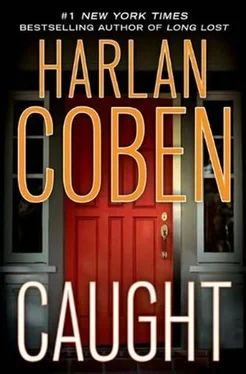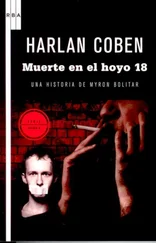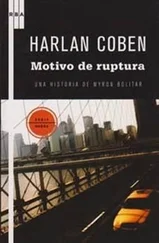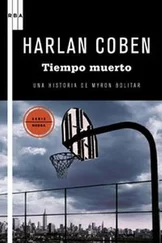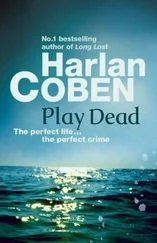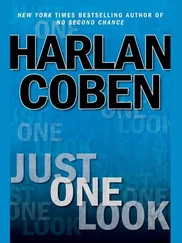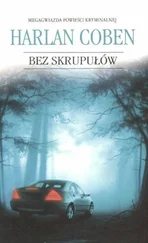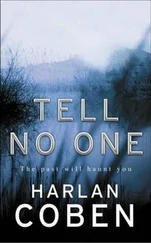They entered the rather pedestrian office of Tara O'Neill, the medical examiner. Wendy was grateful that they were in a room that looked more like a vice principal's office than anything having to do with human corpses. The two women had met before when Wendy covered local murders. Tara O'Neill was dressed in a sleek black dress-much better than scrubs-but what always surprised her about Tara was that she was shockingly gorgeous, albeit with a Morticia Addams vibe. Tara was tall with long, straight, too-black hair and a pale, calm, luminous face-a look that could be described as sort of ethereal goth.
"Hello, Wendy."
She reached from behind her desk to shake hands. Her grip was stiff and formal.
"Hi, Tara."
"I'm not exactly sure why we need to talk privately like this," Tara said.
"Consider it a favor," Walker said.
"But, Sheriff, you don't even have jurisdiction here."
Walker spread his hands. "Do I really need to go through those channels?"
"No," Tara said. She sat down and invited them to do likewise. "What can I do for you?"
The chair was wood and designed for anything other than comfort. Tara sat with her back straight and waited, ever the consummate professional with a bedside manner that clearly worked best on the dead. The room could use a paint job, but as the old joke goes, Tara's patients never complained.
"Like I said on the phone," Walker said. "We want to hear all you have on Haley McWaid."
"Of course." Tara looked at Wendy. "Should we start with the identification process?"
"That would be great," Wendy said.
"First off, there is no doubt that the body found in Ringwood State Park belonged to the missing girl Haley McWaid. There was serious decay, but the skeleton was intact, as was the hair. In short, she looked very much like herself but with the skin gone. Would you like to see a photograph of the remains?"
Wendy flicked a glance at Walker. Walker looked like he might be sick.
"Yes," Wendy said.
Tara slid the photographs across her desk as if they were dinner menus. Wendy braced herself. She did not have a strong stomach when it came to gore. Even R-rated movies made her queasy. She risked one quick glance and turned away, but even in that second, horrible as it was, she could still see Haley McWaid's features in the horror of decay.
"Both parents, Ted and Marcia McWaid, insisted on seeing their daughter's body," O'Neill continued in a perfect monotone. "They both recognized their daughter and gave us positive identifications. We took it several steps further. The height and size of the skeleton matched. Haley McWaid had broken her hand when she was twelve-the metacarpal bone below what we commonly call the ring finger. The injury had healed but we could still see signs of it on an X-ray. And of course, we ran a DNA test from a sample provided by her sister, Patricia. The match was made. In short, there is no doubt about identification."
"How about a cause of death?"
Tara O'Neill folded her hands and put them on her desk. "Undetermined at this juncture."
"When do you think you'll know?"
Tara O'Neill reached across the desk and took back the photographs. "In truth," she said, "probably never."
She carefully slid the pictures back into the folder, closed it, put it to her right.
"Wait, you don't think that you'll ever determine a cause of death?"
"That's correct."
"Isn't that unusual?"
Tara O'Neill finally smiled. It was radiant and sobering at the same time. "Not really, no. Our society unfortunately is being raised on television shows where a medical examiner can work miracles. They look through a microscope and find all the answers. Sadly, that's not reality. For example, let's ask the question, was Haley McWaid shot? First-and this comes more from the crime scene technicians-no bullets were found at the scene. No bullets were found in the body either. I also ran X-rays and visuals to see if there were any unusual nicks or marks on the bones that might indicate a bullet wound. There were none. If that isn't complicated enough, I still can't definitely rule out a shooting. The bullet might not have struck bone. Since most of the body had decomposed, we wouldn't necessarily see any sign if it just passed through tissue. So the most I can say is that there is no evidence of a shooting and that a shooting is unlikely. Are you following me?"
"Yes."
"Good. I would also conclude the same about a knife stabbing, but we just don't know for sure. If, for example, the perpetrator pierced an artery-"
"Yeah, I think I get that.
"And of course there are many more possibilities. The victim may have been suffocated-the classic pillow over the face. Even in cases where the body is found after a few days rather than a few months it can be hard to determine suffocation for certain. But in this case, after spending most likely three months buried, it is virtually impossible. I am also running some specific drug tests to see if there is anything in her system, but when a body breaks down like this, the blood enzymes get released. It throws many tests out of whack. In lay terms, the body almost turns into something like alcohol as it breaks down. So even those drug tests on remaining tissue may prove unreliable. Haley's vitreous humor-that's the gel between the retina and the lens of the eye-had disintegrated, so we couldn't use that to look for drug traces either."
"So you can't even say for sure it's a murder?"
"I, as medical examiner, can't, no."
Wendy looked at Walker. He nodded. "We can. I mean, think about it. We don't even have a body on Dan Mercer. I've seen cases go to court where no body was found, and like Tara said, this is hardly uncommon with bodies found after this much time."
O'Neill rose, clearly indicating their dismissal. "Anything else?"
"Was she sexually assaulted?"
"Same answer: We just don't know."
Wendy stood. "I appreciate your time, Tara."
After another stiff, formal handshake, Wendy found herself back on Norfolk Street with Sheriff Walker.
"Did any of that help?" Walker asked her.
"No."
"I told you there was nothing here."
"So that's it? It's over?"
"Officially for this sheriff? Yeah."
Wendy looked down the street. "I keep hearing Newark is coming back."
"Just not here," Walker said.
"Yeah."
"How about you, Wendy?"
"What about me?"
"Is this case over for you?"
She shook her head. "Not quite yet."
"You want to tell me about it?"
She shook her head again. "Not quite yet."
"Fair enough." The big man shuffled his feet, his eyes on the pavement. "Can I ask you something else?"
"Sure."
"I feel like an ass. I mean, the timing and all."
She waited.
"When this is over, when this all passes in a few weeks"-Walker tried to raise his eyes to meet hers-"do you mind if I call you?"
The road suddenly seemed even more deserted. "You weren't kidding about timing."
Walker jammed his hands in his pockets and shrugged. "I've never been the smoothest."
"Smooth enough," Wendy said, trying not to smile in spite of herself. This was life though, wasn't it? Death made you crave life. The world is nothing but a bunch of thin lines separating what we think are extremes. "No, I wouldn't mind you calling at all."
HESTER CRIMSTEIN'S LAW OFFICE, Burton and Crimstein, was in a midtown Manhattan high-rise and offered fantastic views of downtown and the Hudson River. She could see the military-carrier-ship-turned-museum the Intrepid and the enormous "fun" cruise ships packed with three thousand vacationers and figured that she'd rather give birth than actually go on one. The truth was, this view, like almost any view, just became a view. Visitors were stunned by it, but when you see it every day, much as you never wanted to admit it, the extraordinary becomes commonplace.
Читать дальше
